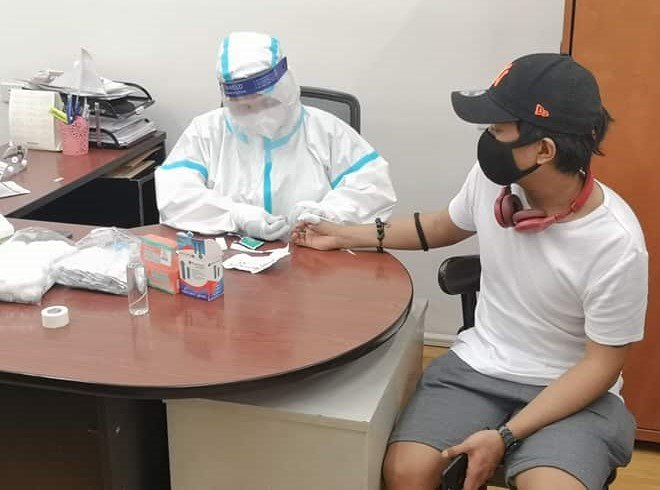By Rey Anthony Chiu | 07:51 PM September 17, 2021
Bohol’s efforts to prevent the entry and spread of viral and bacterial diseases that can potentially affect the multi-billion livestock industry here gets a boost as the Department of Agriculture handed to Bohol a pocket laboratory than can be a game-changer in veterinary diagnostics.
Veterinary authorities celebrate a milestone in their public service in Bohol with the recent acquisition of a Polymerase Chain Reaction (PCR) to help in veterinary diagnostics.
Provincial Veterinarian Dr. Stella Marie Lapiz bared this, citing the latest development is a big help in viral disease detection, especially with the African Swine Fever (ASF) wiping out large hog population in 50 of 81 provinces since it entered the Philippines in August or 2019.
Since the start, very critical samples from animals and livestock need to be sent to the Bureau of Animal Industry in Metro Manila for laboratory diagnostic. But in cases of ASF, that critical time element needed to confirm the presence of the pathogen makes or breaks the loss of millions of farm animals, says Dr. Lapiz at the Kapihan sa PIA.
The PCR, according to Dr. Lapiz, is a pocket laboratory that is commonly used in diagnosis of viral diseases in livestock and companion animals.
Coming to the radio forum to update Boholanos about the ASF and the local measures to control the entry of the viral disease fatal only to pigs, Dr. Lapiz and BAI Quarantine Officer Dr. Maria Eleonor Abisado explain how important the pocket laboratory is, to Bohol and its multi-billion hog industry.
Even if AFS has not entered the province, we can still use the pocket laboratory to strengthen our biosecurity measures, Dr. Lapiz shared.
For example, this month, veterinary authorities would start to get samples of feeds coming in to Bohol from areas infected by the viral disease.
An Executive Order on protecting the island from the entry of ASF has gone to the extent of banning feeds from ASF affected areas. For want of a reliable method of testing, even raw materials for feeds sourced out from affected areas became suspect.
The PCR can help Bohol speed up analyzing samples, taken from sick livestock, and using the PCR, speed up the process of picking on the virus or bacteria which has caused it.
PCR, which analyzes the DNA, is now the most commonly used process in veterinary medicine to detect the presence of infectious organisms, such as viruses, bacteria, and some types of parasites.
DNA-PCR is high standard test that is especially useful for detecting extremely small numbers of infectious organisms, and for detecting infectious organisms such as viruses and some bacteria that are difficult to diagnose by other methods.
It is often more economical than traditional methods of diagnosing infectious disease, and results are usually available in just a few days, according to vcahospitals.com.
In the advent of real-time PCR, Bohol researchers can now can quantify the amount of virus that is present at different sites in the animal, thereby determining the stage of infection. (rahc/PIA-7/Bohol)





